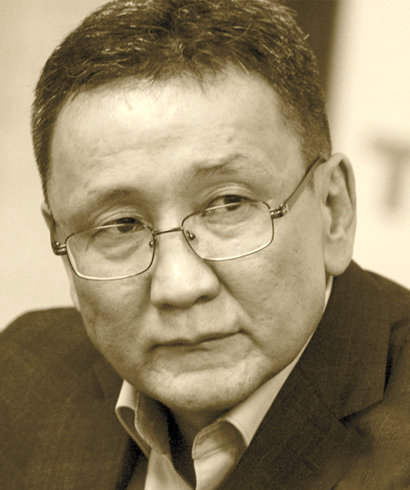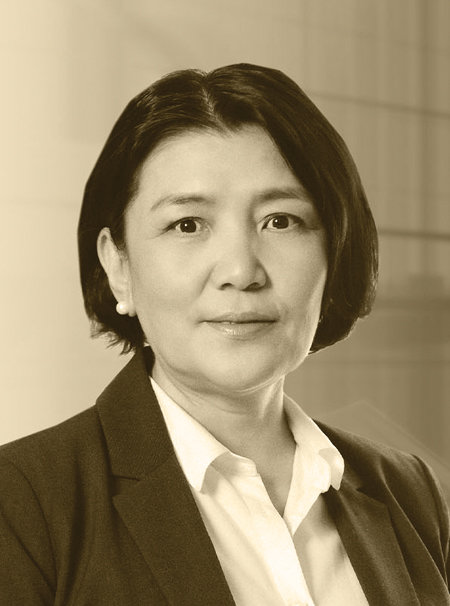PROJECT NEGOTIATIONS MAY TAKE 1 TO 2 YEARS

Economist J.Delgersaikhan
The Oyu Tolgoi project negotiations have gone on for some time with no clear outcome reached. How do you evaluate this negotiation?
The negotiations are, indeed, slow going over more than ten months, but the scope and content of the project are big. Thus, this could take anywhere between 1-2 years. From my perspective, the negotiations are running relatively effectively since the parties have exchanged proposals several times during this period. The success of the project negotiation will be measured by how the disadvantages of the contract and cost overruns are resolved in favor of the Mongolian side, and whether conditions have been ensured for the project’s further implementation.
Rio Tinto has submitted several proposals to the government. For example, it proposed to write off 70 percent of the debt on Mongolia’s 34 percent owned shares. Can this and other proposals be beneficial to Mongolia?
From today’s perspective, Rio Tinto has made relatively beneficial proposals to Mongolia. There are proposals related to Mongolia’s debt and a certain amount of tax revenue to be generated for Mongolia. I am saying beneficial in a sense that these are positive proposals. It is true that the positions of both sides have become tense, and not yet reached agreement. Although no statement has been made from the government that it would favor Rio Tinto’s proposals, it looks as if it is considering to make certain changes to the project such as amendments to the investment agreement. Only the working group The Oyu Tolgol project: How are negotiations proceeding? Negotiations between the Government of Mongolia and Rio Tinto on the implementation of the Oyu Tolgoi project continue with proposals from both sides. MMJ reached out to the parties for clarification on progress. Both parties declined comment. Two economists shared their analysis on the project. Economist J.Delgersaikhan Project negotiations may take 1 to 2 years R. Renchindulam deposits of strategic importance 89 The Mongolian Mining Journal November 2021 would know how further negotiations will proceed. From an economist’s point of view, the government should successfully finalize the negotiations, improve the conditions for Mongolia and continue the project in the long-term.
There are some views that believe the government should collect royalty in exchange for its 34 percent ownership of the project since it is not getting any dividends. Would this provide better value?
The main disadvantage of the contract is the 34 percent ownership. This is stated as 34 percent of a company established based on the Oyu Tolgoi deposit. The 40th Resolution of the Parliament defines the operating conditions of the Oyu Tolgoi and Tavan Tolgoi deposits, and the 57th Resolution stipulates that the 34 percent ownership should be eventually increased to 50 percent (and not decrease from 34 percent). There was an option to determine the 34 percent by debt, taxes, and dividends. As far as I understand, the latter form was chosen, but debt creation limited the possibility of receiving dividends. In the current situation, there might be an option to decline the 34 percent. But how and under what conditions to decline are important. There may be options to sell 34 percent at market value and deduct this from the debt. It is impossible to discuss all this without detailed calculations as we are talking about billions of dollars behind the 34 percent. However, if the 34 percent is retained, the debt issue is likely to continue for Mongolia as a shareholder.
What results do you expect from the project negotiations? On what decisions does the government needs to stand firm or make a compromise to increase the benefits?
I expect that the issue on the debt and dividends related to Mongolia’s 34 percent shares will be resolved positively. Also, the project should be resolved in a balanced way on mutually beneficial grounds. The dispute should be put to an end and the project must continue sustainably. If the project is to be continued in the long run, amendments need to be made to the investment agreement and its foundational terms. If an advantage is created through negotiations, it should be undeniable. For example, in case a certain percentage of the debt is written off, no debt should be allowed to reoccur, or cost to overrun. Also, the issue of dividend distribution should be resolved. Hopefully, the working group is considering all those things.
WE NEED TO LOOK AT THE BENEFITS OF DYNAMIC GROWTH TO BE EFFECTIVE IN THE FUTURE

Professor Kh. Tsevelmaa, Director of the Economic Institute, National University of Mongolia
The Oyu Tolgoi project negotiation is in the spotlight, but no definite solution has been reached yet. How do you evaluate this negotiation?
The issue is politicized, and I will present my position as an economist on the economic benefits of the project. In a broad sense, Oyu Tolgoi was the first agreement with Mongolia’s third strategic partner. There were many flaws in the original contract. We did not have much experience in conducting foreign direct investment agreements with strategic partners. China, for example, has achieved its current level of development by attracting foreign investment over the last 40-50 years. When doing so, China developed projects in partnership with local companies rather than fully relying on foreign investment. However, I think Mongolia participated in the investment on very open terms as well as respecting human rights as a member of many international organizations such as the World Trade Organization and the United Nations. Investment brings many economic benefits but its effect in the short, medium, and long-term remain different. At any given time, its effectiveness can be measured by taxes paid to Mongolia, technological innovation, increased exports, and human resources development. Oyu Tolgoi has paid 8.5 trillion MNT in taxes and fees to the state budget over the last 10 years. It also invested $130 million in education. If Oyu Tolgoi had not been implemented, Mongolia’s economic situation would have been worse during the COVID-19 pandemic. For example, Umnugovi aimag’s GDP would have been cut by 56 percent, study shows. The government would not have chosen to own 34 percent when the agreement was first signed, if Mongolia had accumulated assets and had been able to use the wealth and bear the risks. Now, it is too late to talk about the “if” option. We chose to own 34 percent based on the opportunities available at the time. The agreement can change during the mine operation. What matters to Mongolia is whether the citizens are receiving the benefits from utilized resources. That requires looking at productivity, the distribution benefits, and the efficiency of overall dynamic growth. The allocation of public benefits could have waited until the mine was profitable. We need to look at the benefits of dynamic growth to be effective in the future Professor Kh. Tsevelmaa, Director of the Economic Institute, National University of Mongolia deposits of strategic importance 91 The Mongolian Mining Journal November 2021 However, various forms of transfers such as child money and social welfare began as soon as the mine was put into operation. Social distribution should be considered in an economic activity only after cost recovery, profitable operation and tax payments. The government’s decision to distribute benefits prior to Oyu Tolgoi paying taxes and fees and becoming profitable has caused inefficiency. We cannot understand this large-scale project based on what politicians are explaining and their requirements. Because until this big decision was made, no one knew what went on behind the scenes.
At a time when global copper prices are expected to rise further, both sides are seeking to strengthen their positions for their own benefit. However, the two sides had a disagreement to the point of reaching a court of arbitration. Is it possible to reach consensus in this case?
The Mongolian side needs to look at the issue in the context of the bigger picture. There are a lot of internal issues to be addressed in order to make Oyu Tolgoi more efficient. We need to pay attention to the energy sector, the highest cost expended on this project. We need to focus on foreign trade, for instance, to define and code mineral products in more detail so as to make further progress in the foreign trade structure. We need to make forward looking development plans. The following topics need to be considered in a comprehensive manner, such as security and foreign trade policies, including copper sales, regional development policy, sustainable development policy, export development policy and wealth fund policy. But we appear to focus on investments while leaving trade behind. Consensus should be sought once these issues are resolved.
Rio Tinto has submitted several proposals to the government. For example, it proposed to write off 70 percent of the debt on Mongolia’s 34 percent owned shares. Can this and other proposals be beneficial to Mongolia?
Accrued debt is the result of government’s irresponsible decisions. These should have been made on social and economic benefits. It is illogical to focus on paying off the debt while nobody worried about creating it in the first place. We should have looked ahead and anticipated where the debt would lead us. Better results may be achieved if we listen and negotiate with strategic companies that can represent Mongolia internationally.
There are some views that believe the government should collect royalty in exchange for its 34 percent ownership. Would this provide better value?
Unlike other countries, Mongolia imposes a 5 percent royalty or the same amount of tax on each mineral resource. There is a need for more in-depth research on setting different tax rates on exported mineral products offering competitive rates. Our choices need to be slightly different if Mongolia wants to transition from a consumer to a producer country.
What results do you expect from project negotiations? On what decisions does the government need to stand firm and where should it compromise to increase benefits?
At times when it is doubtful to trust the decisions of politicians, I would only rely on development policy research and evidence that is based on more realistic figures. As an economist, I would like to see the project being effective and contributing to the country’s development. The benefits of dynamic growth need to be considered if we want to work effectively. The public will have a better and correct understanding of this issue if provided with a reliable explanation based on Mongolia’s future development outlook.
Renchindulam